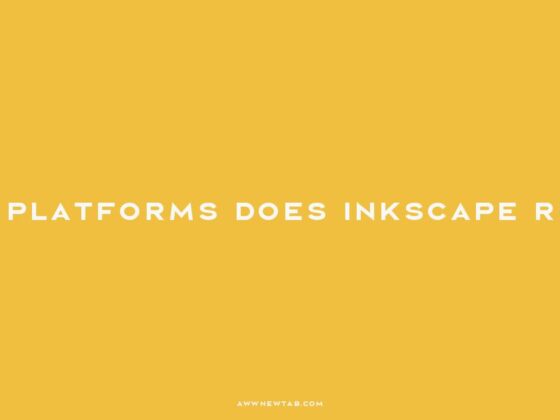What Will Replace Google Chrome: Is it time to bid farewell to Google Chrome, the reigning king of web browsers? As technology evolves and competition heats up, there’s a growing curiosity about what will replace this beloved browser. In this article, we dive deep into the contenders vying for Chrome’s throne, exploring their features, advantages, and potential drawbacks. Join us on this thrilling journey as we uncover the future of web browsing and offer our verdict on Chrome’s reign. Get ready to embark on an exciting adventure with us as we explore the ever-changing landscape of web browsers.
Understanding the Contenders for Chrome’s Throne
As the digital world evolves, so do our tools for navigating it. Google Chrome, long reigning as the monarch of web browsers, still holds the crown according to BroadbandNow in 2023. However, the kingdom of internet browsers is vast, and many are vying for the throne. Let’s explore the potential heirs to Chrome’s legacy, examining their unique qualities and determining whether they are worthy successors.
Microsoft Edge: The Chromium-Powered Challenger
Since its transition to the Chromium engine, Microsoft Edge has significantly upped its game. Offering a familiar user experience to that of Chrome, Edge distinguishes itself with features like 4K Netflix streaming. Its performance is lauded for speed and efficiency, and for those pondering a switch, Edge presents a strong case. It’s a matter of personal preference, but for some, Edge’s optimizations might tip the scales in its favor.
Mozilla Firefox: The Privacy-Focused Alternative
Mozilla Firefox has long been the browser of choice for those who prioritize privacy and customization. With robust security features and a commitment to user rights, Firefox remains a top contender as an alternative to Chrome. Its performance is consistently strong, and it offers a plethora of extensions and themes to tailor your browsing experience.
Brave Browser: The Ad-Blocker’s Dream
Brave takes an aggressive stance against ads and trackers, integrating ad-blocking as a core feature. This not only enhances privacy but can also lead to faster loading times. If ad-blocking is high on your list of priorities, switching to Brave could be a game-changer for your online experience.
Apple Safari: The Ecosystem Entrant
For users deeply entrenched in the Apple ecosystem, Safari is a no-brainer. With seamless integration across devices and a focus on energy efficiency, Safari offers a smooth and streamlined browsing experience on Apple devices. However, its exclusivity to Apple’s ecosystem limits its reach.
Tor Browser: The Anonymity Advocate
Tor Browser is the fortress of anonymity on the internet. It’s designed to protect users’ identities and offer access to the deep web. While not the fastest due to its routing process, for those who have privacy as their utmost concern, Tor Browser is unmatched.
Opera: The Feature-Rich Dark Horse
Opera is often overlooked but it comes with a suite of features including a built-in VPN, ad blocker, and battery saver mode. It’s a well-rounded browser that caters to various needs while maintaining a sleek interface.
Vivaldi: The Customization King
Vivaldi is for the power user who loves to tweak and customize every aspect of their browser. It’s built on Chromium, which ensures compatibility with most Chrome extensions, but its emphasis on personalization sets it apart.
Arc from The Browser Company: The Newcomer
Arc is the new kid on the block, developed by The Browser Company. As a newcomer, it aims to redefine what a browser can be, with a focus on design and user experience. It’s one to watch as it develops and matures.
Is It Time to Dethrone Chrome?
Chrome’s dominance isn’t accidental; it’s a testament to its comprehensive features and reliability. However, competition breeds innovation, and the alternatives are catching up, each with their own unique propositions.
Performance and Resource Consumption
Edge and others are gaining ground with performance optimizations. If Chrome feels sluggish or resource-hungry on your system, considering Edge might be worth your while. Its lower resource consumption could breathe new life into your browsing experiences.
Unique Features and User Experience
While Chrome offers a familiar environment, browsers like Edge and Safari bring exclusive features to the table, such as the aforementioned 4K streaming on Edge. User experience is subjective, and these unique offerings might align better with your personal or professional needs.
Privacy and Security
Privacy concerns are more prevalent than ever. Browsers like Firefox and Brave offer advanced privacy controls that might sway users who feel Chrome falls short in this domain. Tor takes it even further, though at the cost of browsing speed.
Ecosystem Integration
Safari excels within the Apple universe, offering a cohesive experience across devices. If you’re invested in Apple products, Safari might provide a more harmonious browsing experience than Chrome.
Customization and Flexibility
Vivaldi and Firefox champion customization, allowing you to tailor the browsing interface to your liking. This level of flexibility might be enticing for users who find Chrome’s customization options limited.
Our Verdict on Chrome’s Reign
Google Chrome remains the best web browser for the general populace in 2023, but it’s not without its challengers. Microsoft Edge stands out as a commendable third-place option, almost matching Chrome’s speed and offering exclusive features.
When to Consider Switching
Switching from Chrome to another browser is a significant decision, one that should be informed by your specific needs and preferences. Consider the following:
- If you’re experiencing performance issues with Chrome, Edge might offer a smoother experience.
- If privacy is a major concern, Firefox and Brave are strong candidates to explore.
- For those in the Apple ecosystem, Safari is a logical switch with its deep integration.
- When customization is a priority, Vivaldi and Firefox provide extensive options.
- If you’re curious about the future of browsing and open to experimentation, keeping an eye on Arc might be intriguing.
The Future of Web Browsing
The future of web browsing is not set in stone. Innovation in the browser space is continuous, and user preferences are diverse. Whether any of these browsers will dethrone Chrome remains to be seen, but the competition ensures that users will have access to an ever-improving array of options.
In conclusion, while Chrome maintains its crown for now, the landscape is rich with alternatives, each with their own kingdom of features. As users, we have the power to choose our allegiance based on what we value most in our online journeys. The question isn’t just about which browser will replace Chrome, but rather which browser aligns best with your individual needs. With the right choice, the web can be a realm tailored just for you.
FAQ & Related Questions about What Will Replace Google Chrome?
Q: Should I switch from Chrome to Edge?
A: Since Edge moved to Chromium, the browsers are very similar, and which one works better for you is a personal choice. However, in a few areas, Edge has the edge. If you prioritize speed or low resource consumption, you should choose Microsoft Edge over Chrome.
Q: Why is Chrome being discontinued?
A: The reason for Google App being discontinued is that it just isn’t popular enough. The tool was launched way back in 2010 for users of Windows, macOS, and Linux.
Q: Is it worth switching from Chrome to Edge?
A: Since Edge moved to Chromium, the browsers are very similar, and which one works better for you is a personal choice. However, in a few areas, Edge has the edge. If you prioritize speed or low resource consumption, you should choose Microsoft Edge over Chrome. Microsoft Edge, Mozilla Firefox, Brave Browser, Safari, Tor Browser, Opera, Vivaldi, and Arc from The Browser Company are potential replacements for Google Chrome.
Q: Is Chrome no longer the best browser?
A: Our verdict: Google Chrome is the best web browser. But Microsoft Edge is an excellent third-place browser that’s accessible on nearly all platforms. It’s almost as fast as Chrome and Safari and includes a few standout features you can’t get with most browsers, like 4K Netflix streaming.


